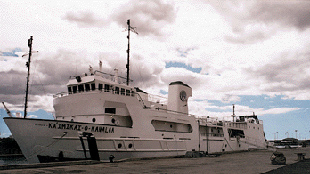
Results of the “Fukushima cruise”—the international team that sampled seawater and sea creatures such as fish and plankton in the waters contaminated by the Fukushima Daiichi nuclear accident—are back. Isotopes traceable to Fukushima, like cesium-134 and -137, have been detected as far as 600 kilometers from shore, but at levels much lower than seawater’s naturally occurring isotopes, like potassium-40, BBC News reported.
"I would not hesitate eating any of the organisms we sampled," Nicholas Fisher of Stony Brook University told the BBC.
The Fukushima-related radioactivity hasn’t been disappearing from the environment at the rate scientists anticipated, however, suggesting that the Daiichi plant may still be leaking. Scientists caution that water less than 30 kilometers away may be more contaminated, and that some organisms in that area may be unsafe to eat.



